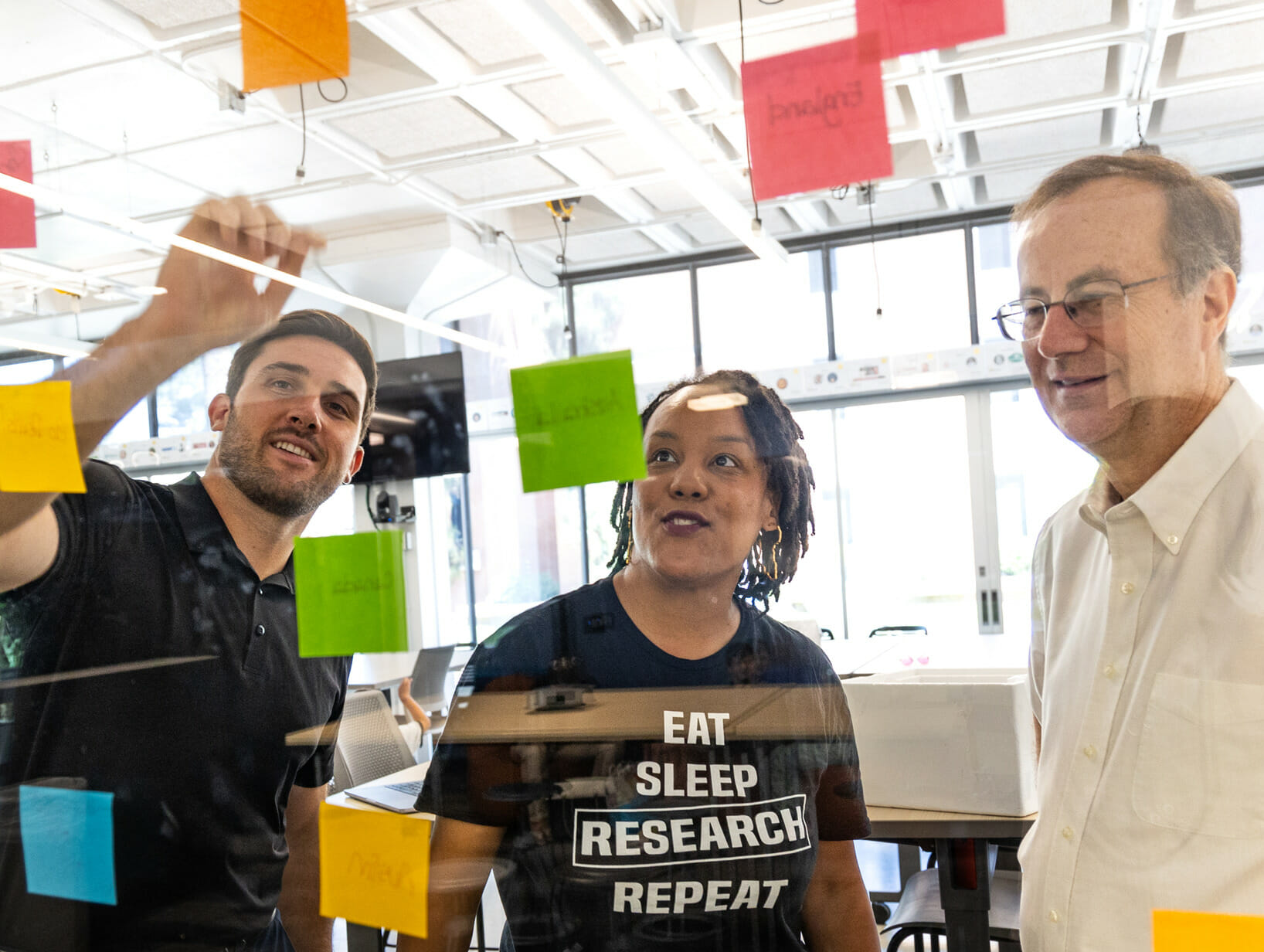
Learning Engineering
Institute Projects
The Learning Engineering Institute provides the means to knit together the entities at ASU focused on enhancing the quality of students’ learning experiences and their success in mastering skills necessary to meaningfully contribute to society and the workforce, and in fulfilling their lifetime goals.
LEI builds upon Learning@Scale, which provides the necessary foundational data for the Learning Engineering Institute. Fundamental to understanding the learning process and in turn implementing change is having ready access to data representative of the learners, the learning process, courses, and outcomes. The purpose of ASU L@S is to provide the infrastructure necessary to support large-scale learning analytics, evaluative and predictive analyses, and experimental studies.
Learning Engineering Action Pods
LEAPs are learning engineering teams formed to address challenges and priorities inspired by needs assessments and evaluative research. One key aspect of the ASU LEAPs is that the teams must include instructors, students, and an interdisciplinary research team to ensure all key stakeholders’ needs and opinions are considered and valued. LEAPs foster a transdisciplinary, pluralistic approach to finding solutions to significant challenges in education.
The composition of LEAPs will depend on the particular focus of the project. For example, if the LEAP is focused on a particular domain of study (e.g., math, computer science), our objective would be to recruit engagement from:
- Core LEI staff, research scientists, and research professionals who bring expertise in various skills that contribute to learning engineering. This includes experimental design, instructional design, data analytics, data architecture, software engineering, education, human-centered design, and other applicable areas.
- Instructors who teach courses in the target domain(s).
- Students who have taken courses in the domains(s).
- Researchers from multiple theoretical perspectives and disciplines, including computer science, engineering, education, psychology, social sciences, natural sciences, and other related areas.
- Action Lab staff who help to provide foundational data analytics and inform directions and potential for success.
- Stakeholders in administration, staff, and faculty who are able to provide key insights regarding needs and potentials for success.
Methodological and Analytical Approach
The LEI supports and encourages the implementation of multiple research methodologies to answer pressing research questions. Methodologies include, but are not limited to, design-based research, user experience research, analysis of archival data, rapid A/B (or A/B/N) testing that includes experimental comparisons of at least two conditions. This methodology is frequently employed within industrial research (e.g., Google) by simultaneously deploying variants of the same interface or design to different site visitors and comparing which variant drives more activity or conversions.
One objective in the LEI is to identify studies that have potential to be implemented and inform meaningful change at ASU. These studies may range from implementations at the university level (e.g., student support systems), information provided directly to students (e.g., via Canvas, Email, social media), support provided to instructors (direct or indirect), and modifications in the learning context (i.e., within courses, or programs). The crucial element across these studies is access to data to rapidly and iteratively assess impact.
A goal of the LEI is to overcome the boundaries imposed in academic learning environments that are temporally and contextually constrained (e.g., semester-long courses) to develop data-driven, iterative improvements in learning.

Privacy, Ethics, and Institutional Priorities
One essential consideration of the LEI is student and institutional privacy and maintaining a focus on studies that support Institutional priorities. LEI will review LEAPs and individual projects to ensure the student and institutional privacy include ethical considerations and maintain continued focus on the ASU Charter and Mission.
The ASU mission includes achieving 90% first-year retention and 85% graduation rates across all areas of study with continued enhancement of learning outcomes.